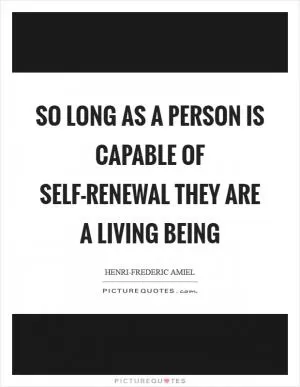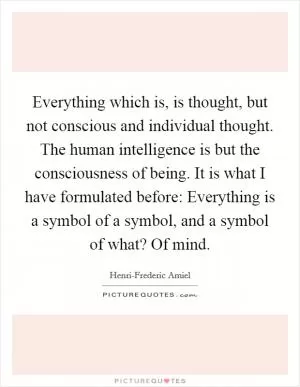Dreams are excursions into the limbo of things, a semi-deliverance from the human prison

Dreams are excursions into the limbo of things, a semi-deliverance from the human prison
Henri-Frédéric Amiel, a Swiss philosopher, poet, and critic, once famously said, “Dreams are excursions into the limbo of things, a semi-deliverance from the human prison.” This profound statement encapsulates the idea that dreams offer us a temporary escape from the constraints of reality and allow us to explore the depths of our subconscious mind.In the context of Amiel’s philosophy, dreams are seen as a form of liberation from the limitations of our waking lives. They provide us with a glimpse into a world beyond the physical realm, where our imaginations can run wild and our deepest desires and fears can be brought to the surface. In this sense, dreams serve as a means of self-discovery and introspection, allowing us to explore the hidden recesses of our minds and come to a better understanding of ourselves.
Amiel believed that dreams have the power to transport us to a state of limbo, where the boundaries between reality and fantasy blur. In this liminal space, we are free to explore the unknown and confront our innermost thoughts and emotions without the constraints of logic or reason. It is in this state of semi-deliverance that we are able to tap into our subconscious mind and unlock the secrets that lie buried deep within us.
For Amiel, dreams were not just random images or sensations that occur during sleep, but rather a window into the soul. They were a reflection of our innermost desires, fears, and aspirations, and a means of connecting with our true selves. By delving into the world of dreams, we are able to gain insight into our own psyche and uncover the hidden truths that lie dormant within us.












 Friendship Quotes
Friendship Quotes Love Quotes
Love Quotes Life Quotes
Life Quotes Funny Quotes
Funny Quotes Motivational Quotes
Motivational Quotes Inspirational Quotes
Inspirational Quotes